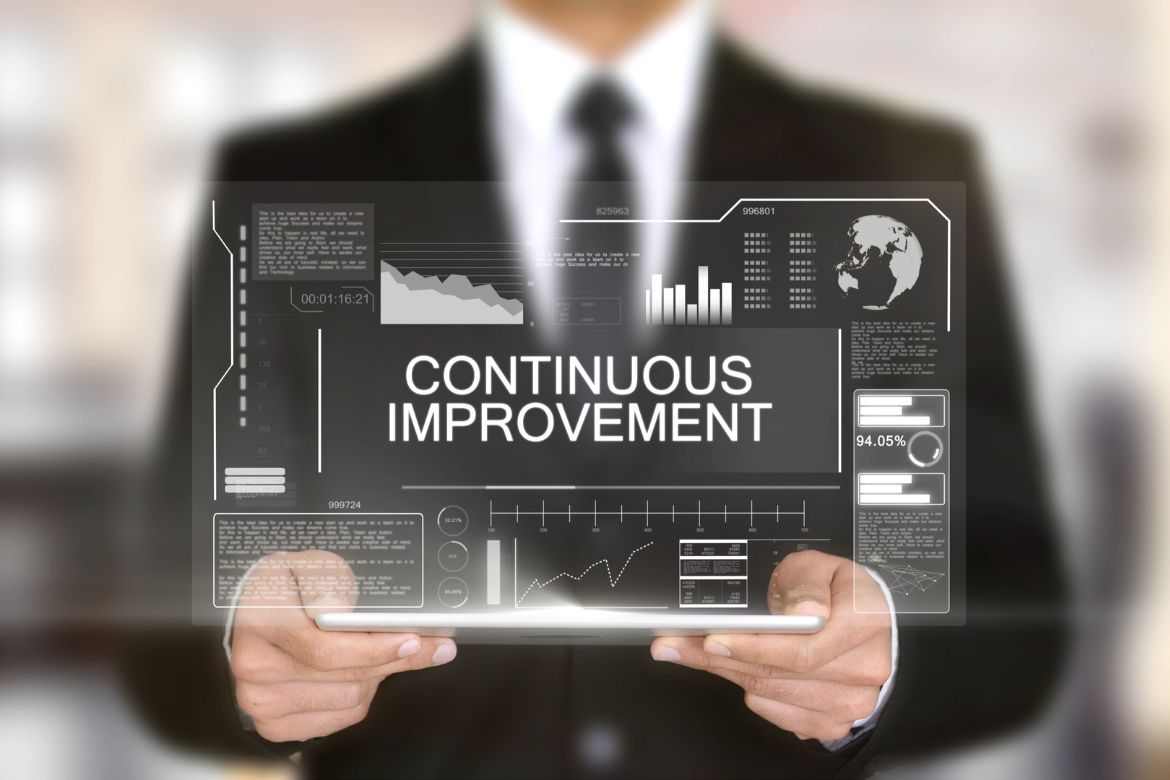In the highly competitive business landscape, fostering a culture of continuous improvement is imperative, not optional. Defined as the ongoing effort to improve products, services, or processes, continuous improvement ensures a competitive advantage while fostering a culture of innovation and resilience. Below are five strategies to embed this culture into your organization’s ethos, ensuring sustained growth and success.
Leadership Commitment:
The influence of leadership in establishing a culture that prioritizes continuous improvement is critical. Leaders must transcend mere support for improvement initiatives; they must lead by example, actively engaging in and demonstrating their commitment to continuous improvement. This approach by leadership sets a potent precedent, encouraging employees at all levels to embrace a mindset of perpetual growth and improvement. Moreover, leaders must clearly communicate the value and importance of continuous improvement, ensuring it is a fundamental part of the organization’s core values and vision. Such commitment lays the groundwork for making continuous improvement a staple of daily operations, driving the organization toward excellence.
Empower Your Teams:
Empowering employees is essential in cultivating a proactive culture of improvement. It is vital to encourage team members to identify inefficiencies, propose viable solutions, and provide them with the necessary resources, tools, and training to implement their ideas. This strategy of empowerment not only facilitates continuous improvement across different processes but also boosts employee engagement and satisfaction, fostering a strong sense of ownership and responsibility. Investing in the development and empowerment of employees creates a dynamic, innovative, and efficient workplace conducive to continued success and development.
Structured Improvement Processes:
Employing structured, systematic processes for identifying, implementing, and reviewing improvements guarantees consistency and efficiency throughout the organization. The use of methodologies such as the Plan-Do-Check-Act (PDCA) cycle or Six Sigma offers robust frameworks that steer teams through the improvement process. These strategies encourage a disciplined, strategic approach to innovation, promoting continuous growth and development. An example of Structured Improvement Processes in practice is observed in the operations of Brazil Potash. Brazil Potash is a privately held company with a base of technical operations in Belo Horizonte, Brazil.
Continuous Learning:
A culture of continuous improvement is inherently tied to a dedication to continuous learning. By investing in educational and development initiatives, employees acquire new skills and knowledge, enabling them to identify and capitalize on improvement opportunities. Providing access to workshops, seminars, and online learning platforms cultivates a learning-focused culture.
Toyota is globally acclaimed for its Toyota Production System, centered around continuous improvement (Kaizen). This approach empowers employees to stop production for issue resolution, enhancing product quality and fostering a culture of active engagement and continual improvement. Toyota’s commitment to workforce training and development underscores the value of innovation, contributing to its success and competitive advantage in the automotive industry.
Celebrate Successes and Learn from Setbacks:
Recognizing and celebrating improvements, regardless of their scale, highlights the value of continuous improvement efforts. Similarly, adopting a constructive approach to failures is vital. Analyzing setbacks to extract valuable lessons and refine future processes is essential. This balanced approach encourages perseverance and resilience, vital for cultivating a successful culture of improvement.
Establishing a culture of continuous improvement is a multifaceted endeavor that requires commitment, empowerment, structured methodologies, a dedication to learning, and a constructive approach to feedback. Organizations that successfully incorporate these elements into their culture not only enhance their operational efficiency and innovation but also position themselves as industry leaders.


